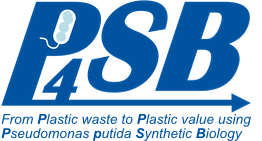PHA - bioplastics with future ...
PHA (Poly-Hydroxy-Alkanoates or polyhydroxy fatty acids) is a family of biobased polyesters. As in many mammals, including humans, that hold energy reserves in the form of body fat there are also bacteria that hold intracellular reserves of polyhydroxy alkanoates. Here the micro-organisms store a particularly high level of energy reserves (up to 80% of their own body weight) for when their sources of nutrition become scarce. Examples for such Polyhydroxyalkanoates are PHB, PHV, PHBV, PHBH and many more. That’s why we speak about the PHA platform.
This PHA-platform is made up of a large variety of bioplastics raw materials made from many different renewable resources. Depending on the type of PHA, they can be used for applications in films and rigid packaging, biomedical applications, automotive, consumer electronics, appliances, toys, glues, adhesives, paints, coatings, fibers for woven and non-woven and inks. So PHAs cover a broad range of properties and applications.
That’s why bioplastics MAGAZINE and Jan Ravenstijn are now organizing the 1st PHA-platform World Congress on 4-5 September 2018 in Cologne / Germany.
This congress will address the progress, challenges and market opportunities for the formation of this new polymer platform in the world. Every step in the value chain will be addressed. Raw materials, polymer manufacturing, compounding, polymer processing, applications, opportunities and after-use or end-of-life options will be discussed by parties active in each of these areas. Progress in underlying technology challenges will also be addressed.
When there is sufficient interest there will be a workshop on the basics of the PHA-platform in the afternoon of September 3rd, preceding the conference.
Call for papers now open.
Registration and Image source: http://www.bioplasticsmagazine.com/en/kontakt/1PHA_registration.php




